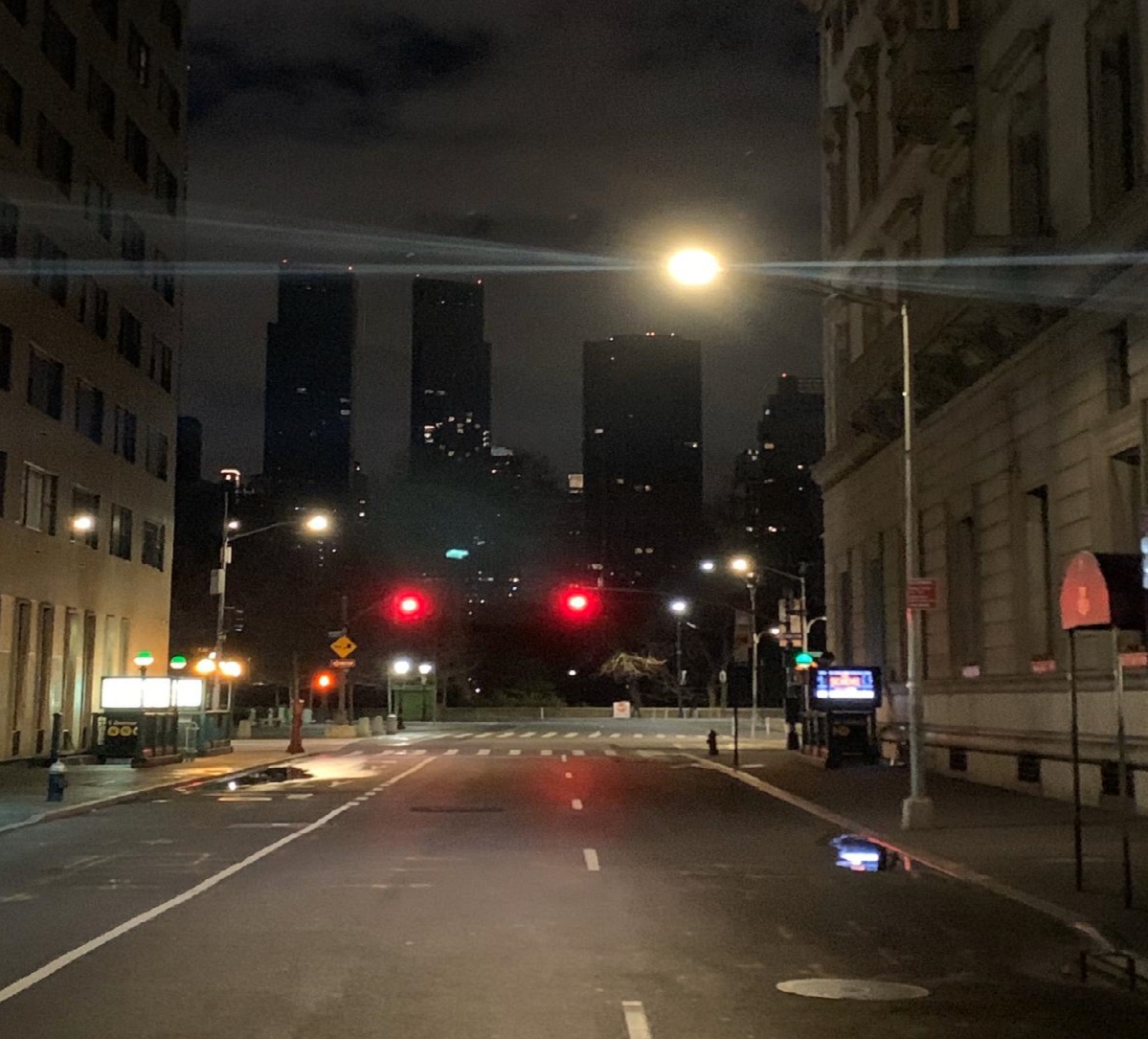Lee este artículo en español aquí.
There was nothing gradual about it. In the blink of an eye, our world changed. Being obliged to change our social practices overnight left almost no time for adaptation. What started as rumors of a distant disease coming from half the world away quickly became associated with first and last names, loved ones, dear friends.
Living in New York City is usually a daily exercise in humility. It’s all too easy to feel anonymous. You know that no one is indispensable, yet you have to acknowledge that the life of the city could easily go on without you. COVID-19 reminds us that what makes someone indispensable is what they mean to their loved ones. Nowadays I can’t help but feel my soul cringe at the constant sound of sirens on the acoustic horizon. The cacophony has taken on a new meaning as ambulances hurry through desolated streets with the breathless and lonely family member of someone, possibly a friend of mine, that loves and cares for them, because they are indispensable.
As we all know, most Americans, and most human beings for that matter, are practicing some sort of social distancing. That is the only remedy available to keep the virus from spreading. But not everyone has a place to socially distance themselves, and some of us have the space, access to food, health, time, skills, and resources that make doing so much easier.
But those who are most impacted by the pandemic don’t necessarily see themselves as “vulnerable,” as I was reminded on a recent call with people with disabilities. Many identify instead as resilient. Their modus operandi is adapting to adverse situations. In that sense, we all, to some degree, have had to learn to become more resilient.
Spending part of the aftermath of Hurricane Maria in my native Puerto Rico taught me a lot about resilience. What many are experiencing because of social distancing, Puerto Ricans passed through, but without electricity, internet, or water service. These are, of course, different crises, but both were made worse by a lack of preparation and a collective powerlessness. Just as doctors now face a terrifying shortage of ventilators in the aftermath of Hurricane Maria, doctors found themselves unable to help those who died when their breathing support switched off along with the island’s electricity.
But Puerto Ricans became much more resilient during that period and arguably better equipped to tolerate very difficult situations like the COVID-19 pandemic or the recent earthquakes. When the federal government turned its back on the island and denied much-needed aid, (many of you might remember the pathetic moment when President Trump threw paper towels to a selected group of people in need) people started to organize themselves and plan for future disasters.
I draw the comparison between Puerto Rico and New York because moments of crisis and vulnerability can also be moments of learning, personal growth, and resilience. Right now, the Sierra Club is working to ensure that all communities have the resources they need to be resilient by supporting mutual aid work. Together, we can build a future where we are better prepared to survive the disasters that we know will come -- even if we don’t know exactly when. If you are able, I encourage you to donate to local, grassroots organizations who are building community resilience.
But resilience also happens on a larger scale. Years of divestment in our health care system has become apparent, as has its disproportionate impact on low-income communities and communities of color. We must dedicate resources on state, local, and federal levels to disaster preparedness. While the office in charge of pandemic preparedness should have never been dissolved as the Trump administration did, it is important to devote resources to study the possibilities of future pandemics and climate disasters, so that we can face them with plans to build a better future already written.

Photo courtesy of Francisco J. Casablanca
